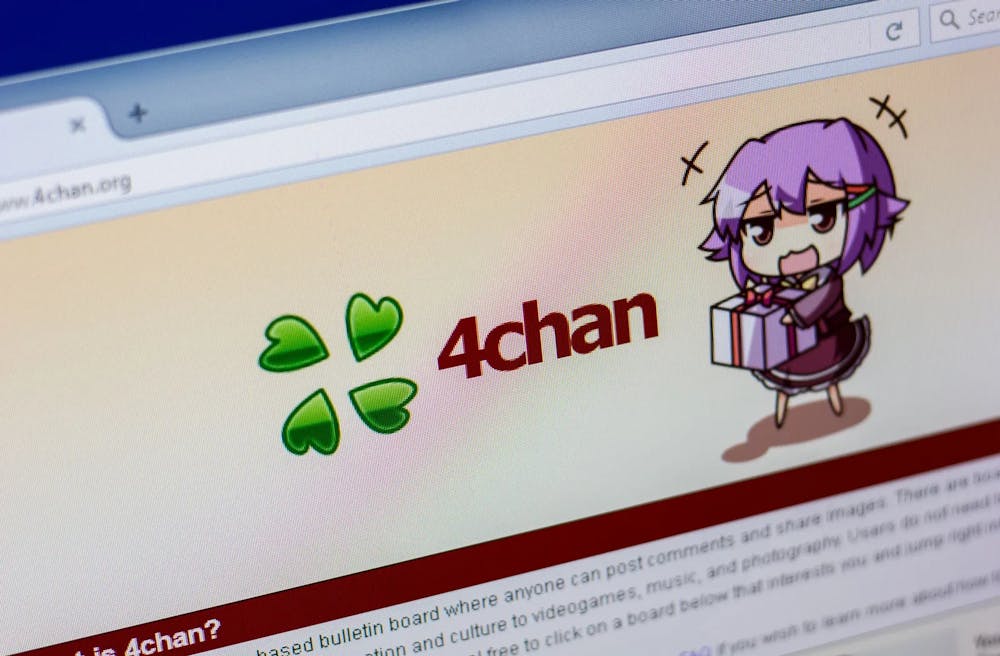The internet has revolutionized the way we communicate and access information, providing us with an unparalleled level of convenience and connectivity. The ease and speed at which we can obtain knowledge and connect with people from around the world is unprecedented.
However, with the growth of the internet, certain websites have emerged that pose significant dangers to users. One such website is 4chan, an anonymous online forum that has gained notoriety for its toxic community and harmful content. The anonymity offered by 4chan has created an environment where users feel emboldened to post hateful and abusive messages without fear of reprisal.
This has resulted in a proliferation of cyberbullying, harassment, and even illegal activities. The dangers of 4chan cannot be overstated, as the website has been associated with numerous incidents of violence and harm.
4chan is a website that was created in 2003 by a 15-year-old student named Christopher Poole. The website was originally designed as an image board where users could share images and discuss various topics anonymously. The site was initially created as a place for fans of Japanese anime to gather and share content, but it quickly grew in popularity and expanded to include a wide range of topics.
The site's popularity is largely attributed to its unique posting system, which allows users to post without revealing their identities. This anonymity has made the site attractive to individuals who want to share their thoughts and opinions without fear of retaliation or consequences.
However, it has also made it difficult to regulate the content on the site, resulting in the aforementioned spread of misinformation, hateful messages, and even threats of violence.
Over the years, 4chan has gained notoriety for its controversial content, toxic community, and involvement in legal issues. The website has become infamous for its extreme content and negative impact on society, leading to widespread criticism from the media, public, and governments alike.
It is undoubtedly one of the most chaotic and harmful websites today, with numerous incidents linked to the site that pose a significant danger to its users. These incidents often involve a deep-seated belief in racism, homophobia, sexism, and alt-right ideologies among members.
One incident involved the hacking of the late Travon Martin’s email and Facebook account by a hacker called Klanklannon. Klanklannon posted screengrabs of emails and Facebook messages to 4chan’s politics board in an attempt to show that Martin “somehow deserved to be killed.” This sobering incident showcases the terrifying extent to which people can go on the internet and have a negative impact on others. Unfortunately, this was not the first or last hate-fueled incident perpetrated by 4chan users.
Moreover, 4chan has been used as a platform for radicalization and has been linked to several attacks and terrorist incidents. The website has been used to share extremist ideologies and to coordinate and plan violent acts. This has led to many governments and law enforcement agencies monitoring the website closely.
On 9 March 2019, 28-year-old white supremacist Brenton Tarrant massacred 51 people during Friday prayers at the Al Noor Mosque and the Linwood Islamic Centre in Christchurch. This became one of the deadliest mass shootings in the history of New Zealand. The distressing attack sparked a surge of alt-right terrorist attacks perpetrated by white supremacists in Poway, El-Paso, Norway, and Germany.
All of the terrorists announced their attacks on social media including anonymous imageboard 4chan as well as 8chan, Endchan and Kohlchan. In the past few years, anonymity with a lack of proper moderation has made these platforms places for an unpredictable group of far-right nationalists and white supremacists. These people rapidly and anonymously produce and spread fascist content online for other users to ingest.
Enjoy what you're reading?
Signup for our newsletter
4chan unfortunately is not the only breeding ground for harmful ideologies. This speaks to a larger problem of fascist ideologies being perpetuated on the internet.
Digital technology has become increasingly intertwined with fascist ideologies and policies. In the digital age, fascists have harnessed the power of social media platforms to disseminate their messages, recruit new members, and spread misinformation. They have also utilized data analytics and algorithms to target and manipulate public opinion. Moreover, digital technology has been used to monitor and control dissent, with authoritarian regimes employing surveillance technologies and censorship to silence critics and enforce their agenda.
The rise of digital fascism underscores the urgent need for ethical and responsible use of technology, as well as efforts to combat the spread of harmful ideologies. Digital fascism on 4chan poses a significant threat to public discourse and societal cohesion, highlighting the potential dangers of unregulated online platforms.
It is crucial to be vigilant and cautious when dealing with websites like 4chan due to the highly objectionable nature of their content. These anonymous forums are infamous for hosting controversial and often offensive discussions, including hate speech, trolling, and even cyberbullying.
The lack of moderation and accountability on these platforms can lead to the spread of misinformation, harassment, and even extremist ideologies. Engaging with or sharing content from these websites can have serious consequences, including damaging one's reputation, perpetuating harmful narratives, and contributing to the normalization of harmful behaviors and attitudes. The dangers of 4chan know no bounds.
Therefore, it is essential to exercise utmost caution and critical thinking while dealing with these websites and to prioritize the safety and well-being of oneself and others while navigating online spaces. Always prioritize your safety and the safety of others while navigating online spaces. Stay informed, be vigilant, and exercise critical thinking to ensure a safe and positive online experience.




